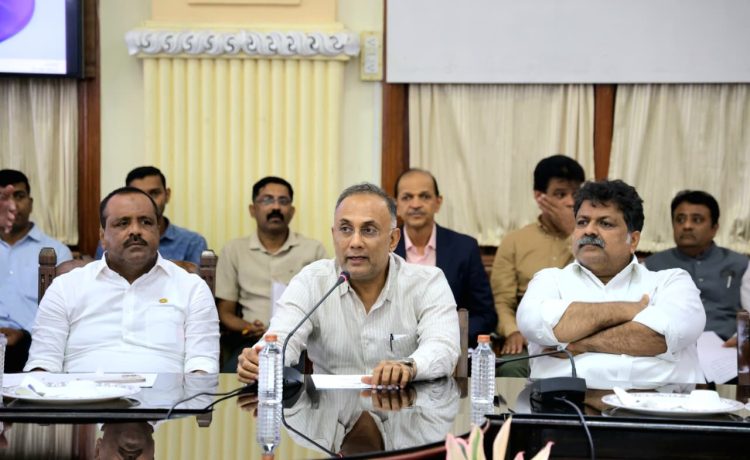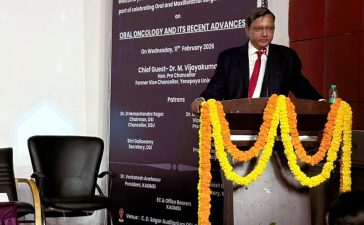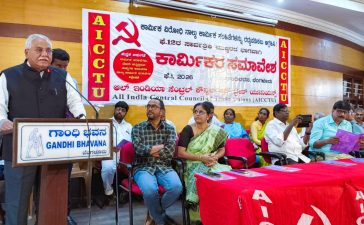Karnataka to Introduce Tele-ECG in All Taluk and Community Health Centres: Minister Dinesh Gundu Rao
Bengaluru: In a bid to tackle the rising cases of sudden cardiac arrests, Karnataka Health Minister Dinesh Gundu Rao on Monday announced that tele-ECG facilities will soon be made available across all taluk hospitals and community health centres in the state.
Speaking during the Question Hour in the Legislative Council, the minister said the initiative aims to provide timely cardiac diagnosis and preventive care at the local level. “With the availability of tele-ECG, patients in community health centres will have access to early diagnosis and expert guidance without having to travel long distances. This system will play a crucial role in detecting heart-related conditions at the earliest stage,” Gundu Rao said.
Expansion of ‘Hridaya Jyothi’ Scheme
The minister highlighted the success of the Puneeth Rajkumar Hridaya Jyothi Scheme, launched to prevent sudden heart attacks through a hub-and-spoke model of treatment. Currently operational in 86 government hospitals, the scheme has saved thousands of lives.
“We are in the process of expanding Hridaya Jyothi to all taluk hospitals and community health centres. With this, life-saving interventions will be available more widely, and patients in smaller towns and rural areas will not be deprived of emergency care,” the minister added.
Free Tenecteplase Injections
Responding to a demand by Council member Dhananjay Sarji to ensure availability of Tenecteplase, an emergency injection used to prevent fatalities during cardiac arrest, the minister said the drug is already being provided free of cost under the scheme.
“This injection costs around ₹25,000, but under Hridaya Jyothi we are supplying it free of cost. Once the scheme is extended to all taluk and community hospitals, Tenecteplase will be available free of charge everywhere,” Gundu Rao informed the House.
New Cath Labs for Advanced Treatment
To further strengthen cardiac care, new cath labs will be established at Mangaluru Wenlock Hospital, CV Raman Nagar Hospital in Bengaluru, and Hosapete Hospital. These facilities will enable advanced interventional treatment for patients with critical heart and vascular conditions.
Preventive Care Through Home Health Programme
The health minister stressed the importance of early detection and preventive care. As part of the Home Health Scheme, the government has initiated free screening of individuals above 30 years of age for hypertension and diabetes across all districts.
“Hypertension and diabetes are the leading causes behind heart attacks, strokes, and kidney failures. Timely detection and treatment can prevent these life-threatening conditions. Along with these, screening for 14 other diseases is also being carried out under the programme, which will have a major impact on improving rural health outcomes,” Gundu Rao explained.
A Step Towards Strengthening Rural Healthcare
Health experts have long emphasized the lack of timely diagnostic facilities in rural Karnataka, which often leads to late detection of cardiac issues. By extending tele-ECG services, free emergency injections, and preventive screening to every taluk and community health centre, the government aims to strengthen rural healthcare delivery and reduce preventable deaths from cardiac emergencies.
“This is a significant step in ensuring equitable access to healthcare and protecting lives, especially in underserved areas,” the minister concluded.
🗣️ Key Quotes
-
“With the availability of tele-ECG, patients in community health centres will have access to early diagnosis and expert guidance without having to travel long distances.” – Dinesh Gundu Rao, Health Minister
-
“The Puneeth Rajkumar Hridaya Jyothi Scheme has already saved thousands of lives. We are expanding it to every taluk and community hospital.” – Dinesh Gundu Rao
-
“Tenecteplase costs around ₹25,000, but under the scheme we are supplying it free of cost to all hospitals.” – Dinesh Gundu Rao
-
“Hypertension and diabetes are the root causes of heart attacks, strokes, and kidney failures. Early detection and treatment can save countless lives.” – Dinesh Gundu Rao
![]()











